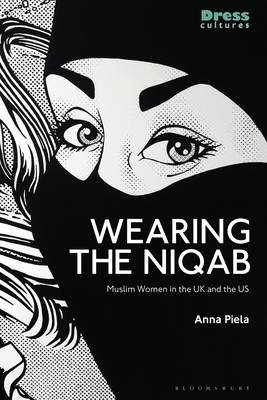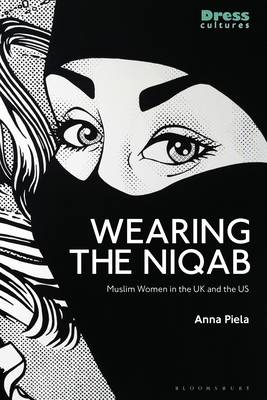
Je cadeautjes zeker op tijd in huis hebben voor de feestdagen? Kom langs in onze winkels en vind het perfecte geschenk!
- Afhalen na 1 uur in een winkel met voorraad
- Gratis thuislevering in België vanaf € 30
- Ruim aanbod met 7 miljoen producten
Je cadeautjes zeker op tijd in huis hebben voor de feestdagen? Kom langs in onze winkels en vind het perfecte geschenk!
- Afhalen na 1 uur in een winkel met voorraad
- Gratis thuislevering in België vanaf € 30
- Ruim aanbod met 7 miljoen producten
Zoeken
€ 69,45
+ 138 punten
Omschrijving
Bringing niqab wearers' voices to the fore, discussing their narratives on religious agency, identity, social interaction, community, and urban spaces, Anna Piela situates women's accounts firmly within UK and US socio-political contexts as well as within media discourses on Islam.
The niqab has recently emerged as one of the most ubiquitous symbols of everything that is perceived to be wrong with Islam: barbarity, backwardness, exploitation of women, and political radicalization. Yet all these notions are assigned to women who wear the niqab without their consultation; "niqab debates" are held without their voices being heard, and, when they do speak, their views are dismissed.
However, the picture painted by the stories told here demonstrates that, for these women, religious symbols such as the niqab are deeply personal, freely chosen, multilayered, and socially situated. Wearing the Niqab gives voice to these women and their stories, and sets the record straight, enhancing understanding of the complex picture around niqab and religious identity and agency.
The niqab has recently emerged as one of the most ubiquitous symbols of everything that is perceived to be wrong with Islam: barbarity, backwardness, exploitation of women, and political radicalization. Yet all these notions are assigned to women who wear the niqab without their consultation; "niqab debates" are held without their voices being heard, and, when they do speak, their views are dismissed.
However, the picture painted by the stories told here demonstrates that, for these women, religious symbols such as the niqab are deeply personal, freely chosen, multilayered, and socially situated. Wearing the Niqab gives voice to these women and their stories, and sets the record straight, enhancing understanding of the complex picture around niqab and religious identity and agency.
Specificaties
Betrokkenen
- Auteur(s):
- Uitgeverij:
Inhoud
- Aantal bladzijden:
- 192
- Taal:
- Engels
- Reeks:
Eigenschappen
- Productcode (EAN):
- 9781350212657
- Verschijningsdatum:
- 25/08/2022
- Uitvoering:
- Paperback
- Formaat:
- Trade paperback (VS)
- Afmetingen:
- 156 mm x 234 mm
- Gewicht:
- 272 g

Alleen bij Standaard Boekhandel
+ 138 punten op je klantenkaart van Standaard Boekhandel
Beoordelingen
We publiceren alleen reviews die voldoen aan de voorwaarden voor reviews. Bekijk onze voorwaarden voor reviews.









